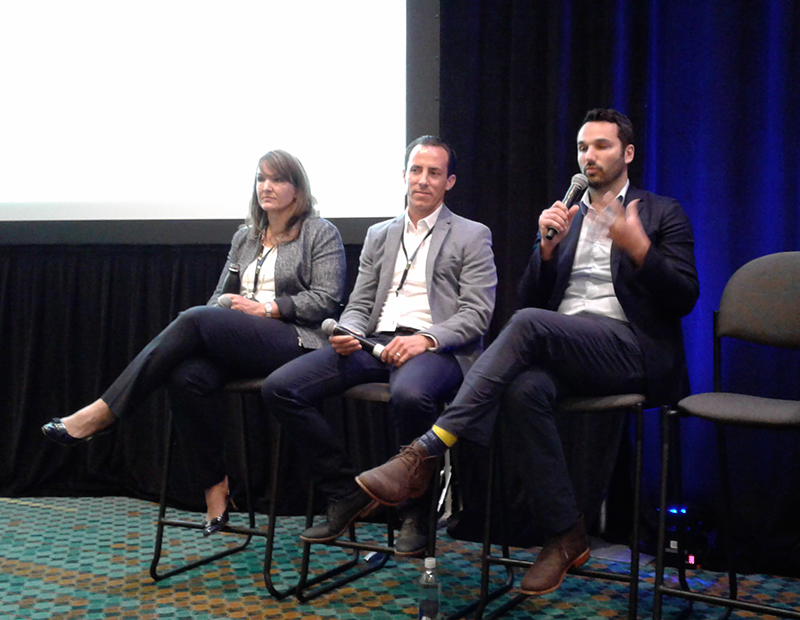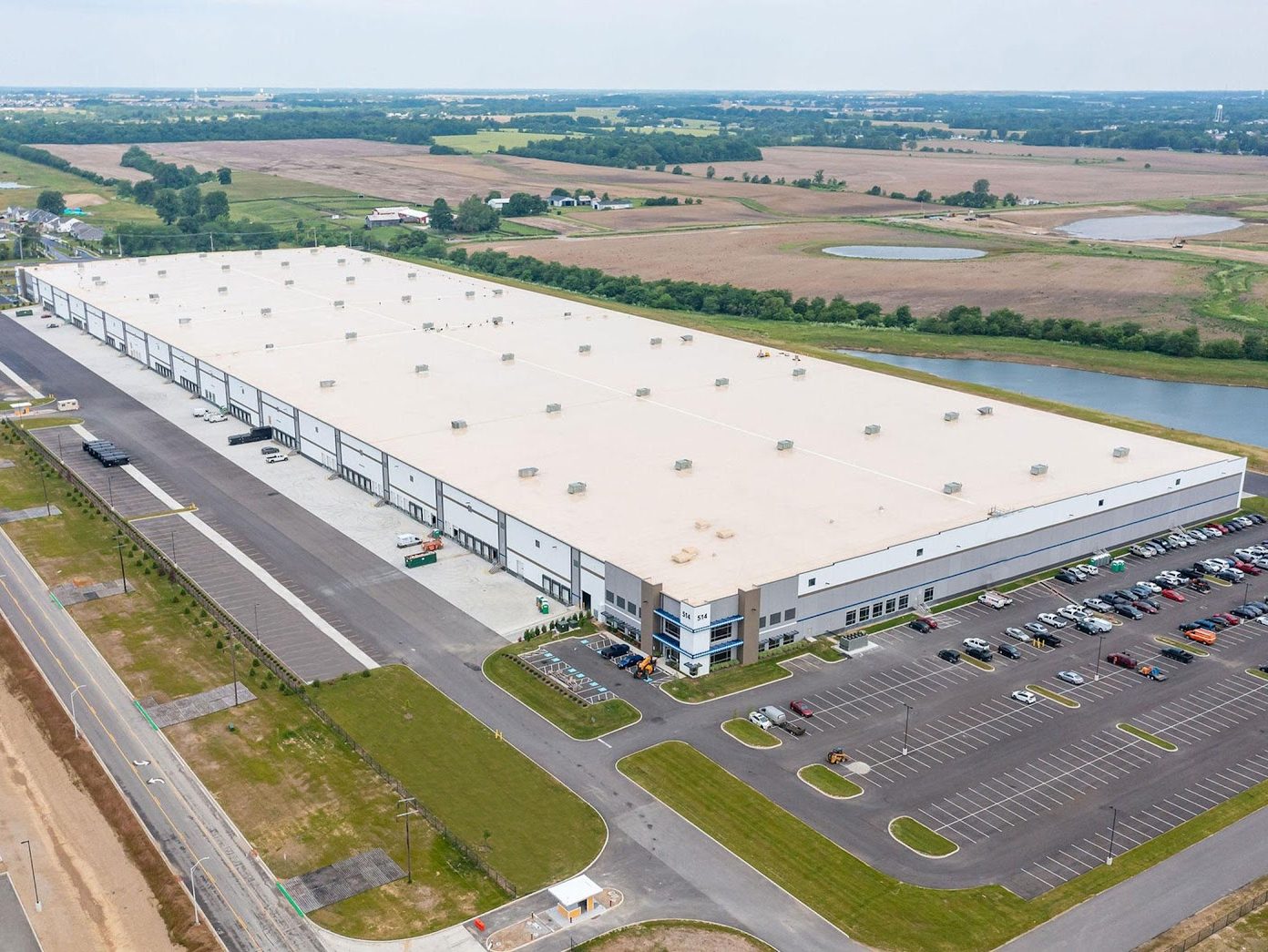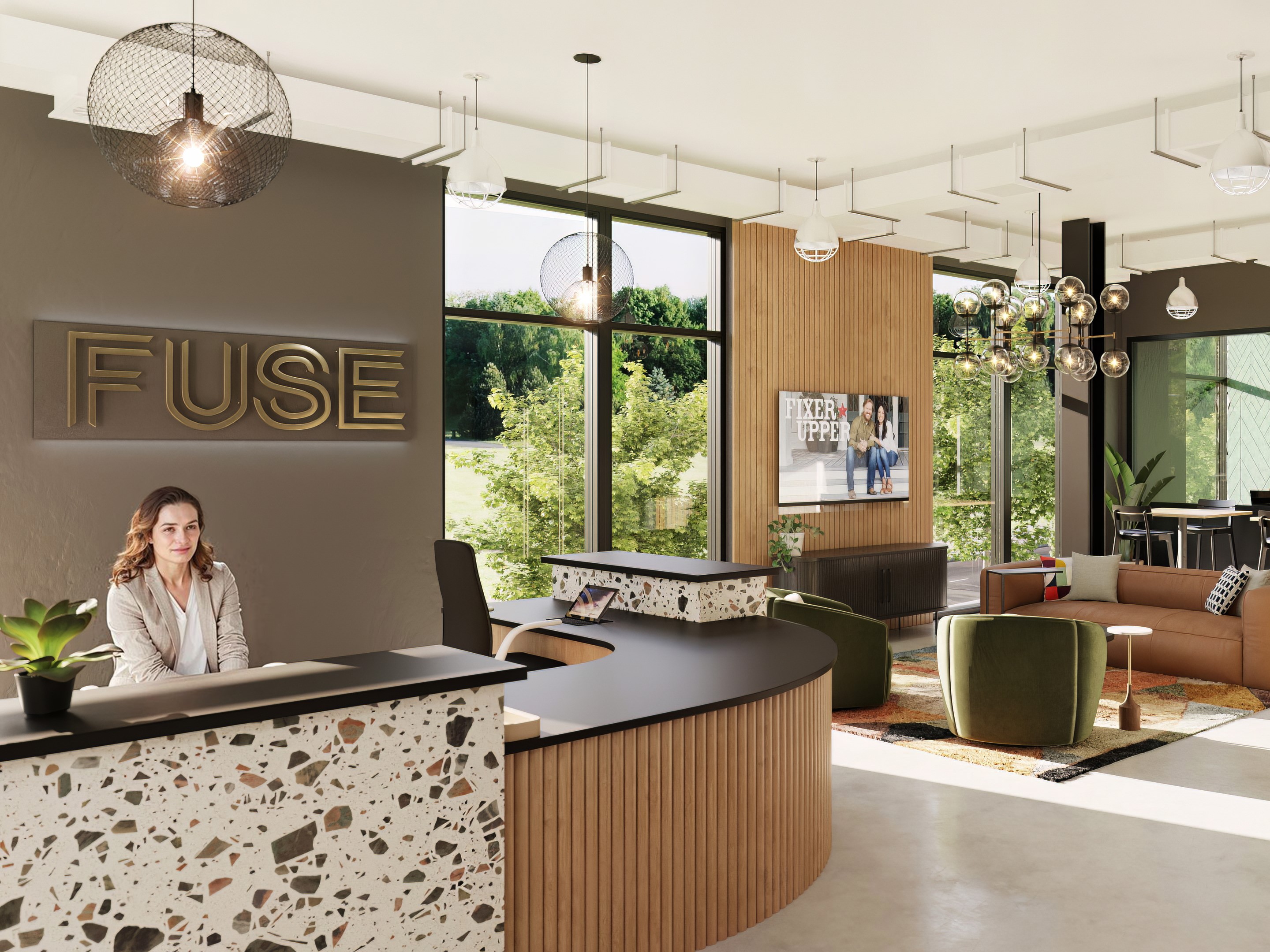Corporations, Not Startups, Drive Coworking Surge
Enterprise users are shaking up the real estate industry by demanding better spaces for their employees, say executives at flexible office firms WeWork, Industrious and CommonGrounds Workplace.

Left to right: Darlene Pope, WeWork; Jacob Bates, CommonGrounds Workplace; Jamie Hodari, Industrious
Coworking has come a long way from its origins as a transitory and flexible alternative to the traditional workplace as the industry’s leading operators shift much of their focus to serving corporate clients and striking deals with landlords to manage entire buildings.
Jamie Hodari, CEO and co-founder of premium social workplace provider Industrious, is betting that the sector is approaching a tipping point. “I do think we have a lot of large enterprises that are nearing the end of the experimental period with Industrious or CommonGrounds or WeWork,” Hodari said in a panel at this year’s Realcomm event.
“And if they come to the conclusion that [spaces provided by third-party firms] were as good if not better than spaces they created themselves, they are going to massively double down on their consumption of outsourced workspace products,” he added. “Which I think is what you’re going to see over the coming years.”
New York City-based Industrious has more than 80 locations across 42 cities, with another 80 to 100 in the pipeline for the coming year.
Serving corporate needs
Executives from rival flexible office firms WeWork and CommonGrounds Workplace, who also sat on the panel at the annual real estate technology conference, are making similar calculations.
“It’s really accelerating to a point where the end user’s now becoming the enterprise corporate office occupier,” noted CommonGrounds CEO Jacob Bates. “And there are surveys out there (that) 65 to 70 percent of them are saying their employees are more engaged. They’re more productive in these types of environments.”
CommonGrounds bagged $100 million in Series A funding in January to grow its workplace-as-a-service platform to roughly 50 sites over the next two years.
Darlene Pope, who serves as global head of WeWork’s smart building and digital workplace strategy, reckons that larger corporate clients make up 40 percent of the brand’s business. “We see a lot of the drive from some of our enterprise clients that already have their own facilities in major markets, and are looking for supplemental space in secondary markets, where they may be a WeWork member,” she said.
The business owned by The We Cos. is opening an average of one to two locations per day, and the entire portfolio has a roughly 90 percent occupancy rate.
“The scale right now is massive,” Pope said.







You must be logged in to post a comment.